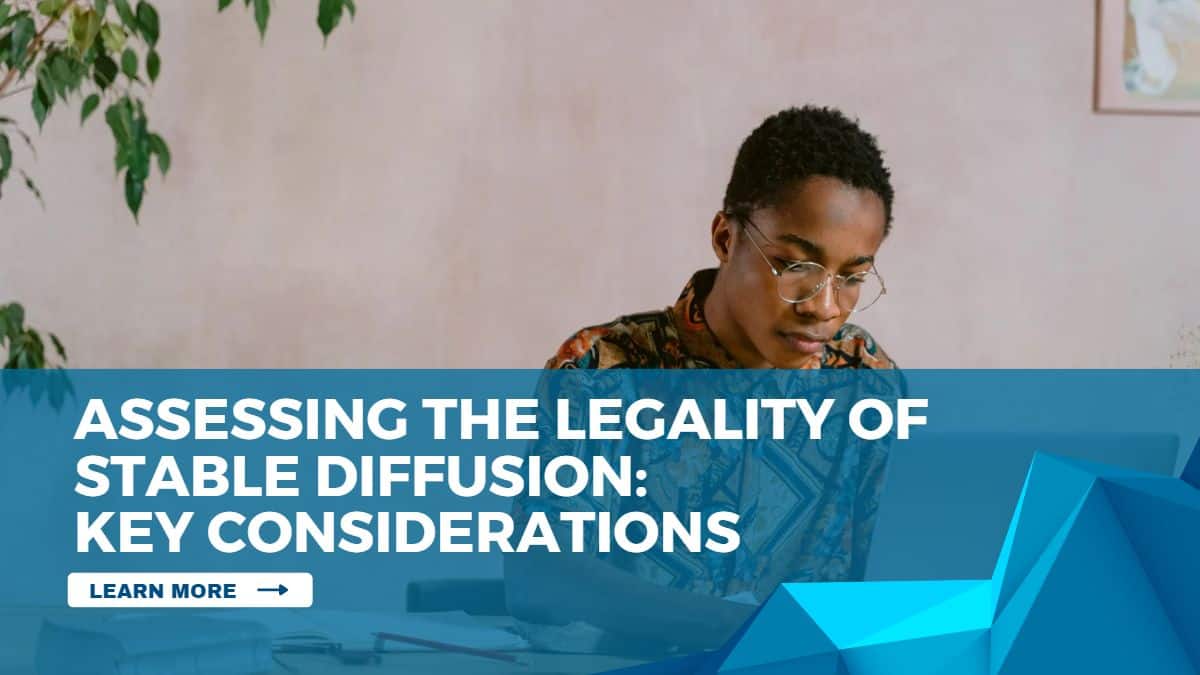Assessing the Legality of Stable Diffusion: Key Considerations

Table of Contents
Stable Diffusion is an AI that can transform text into images. It has gained popularity for its ability to generate top-notch, realistic images from written prompts. But with any new technology, it’s important to consider whether it’s legal and safe to use.
In this article, we’ll explore the legality of using Stable Diffusion as an individual user.
Understanding Stable Diffusion
Before diving into Stable Diffusion’s legality, let’s understand it. Stable Diffusion is an AI image generator tool that uses machine learning algorithms to produce high-quality images from text prompts.
It’s designed to be user-friendly and accessible, allowing anyone with a compatible computer to create beautiful, unique images.
It's Not for Faking IDs
One key factor that makes Stable Diffusion legal is that it uses publicly available datasets to generate images. These datasets are freely available online and do not violate copyright or intellectual property laws.
The creators of Stable Diffusion have clarified it that the software is not to be used for illegal or harmful purposes, such as creating fake IDs, deep fakes, or other forms of misinformation.
It's Not a Hacking Tool
Stable Diffusion is not a hacking tool or a form of malware. It’s a legitimate software program that’s been designed for the specific purpose of generating images from text prompts. As long as users use the software for its intended purpose, they should not worry about legal consequences.
Keeping the Legal Gray Areas in Mind
However, it’s important to note that laws regarding AI and machine learning are still relatively new and evolving. As with any new technology, there may be legal gray areas or changes to regulations that could affect the use of Stable Diffusion in the future.
Best Practices for Using Stable Diffusion
While this AI is legal, users should follow some best practices to use the software responsibly and ethically.
Use it Only With Legal and Ethical Objectives
First, users should only use Stable Diffusion for legal and ethical purposes. This means refraining from using the software to create fake IDs, deep fakes, or other forms of misinformation. Users should ensure they have the right to input the text prompts into the software.
Understating Potential Discrimination and Bias
Users should also know the potential for bias and discrimination in AI algorithms. Like any AI tool, Stable Diffusion is only as unbiased as the datasets it uses. It’s important for users to be aware of this potential bias and to take steps to mitigate it by using diverse and representative datasets.
Keeping Permissions in Mind
Finally, users should always ensure they have the necessary permissions to use the images generated by this AI. While the images are not inherently illegal, they may still be subject to copyright or intellectual property laws. Users should always obtain the necessary permissions before using or distributing the images.
Is Stable Diffusion Legal to Use?
The short answer is yes, Stable Diffusion is legal to use as an individual user. The software is not designed for illegal or harmful purposes, and the creators have taken measures to ensure it’s used responsibly and ethically.
Conclusion
Stable Diffusion is a powerful and exciting AI image generator tool that’s legal to use as an individual user. As long as users use the software for its intended purpose and follow best practices for ethical and responsible use, they should not worry about legal consequences.
However, it’s important to stay informed about regulation changes and always use AI tools responsibly and ethically.
